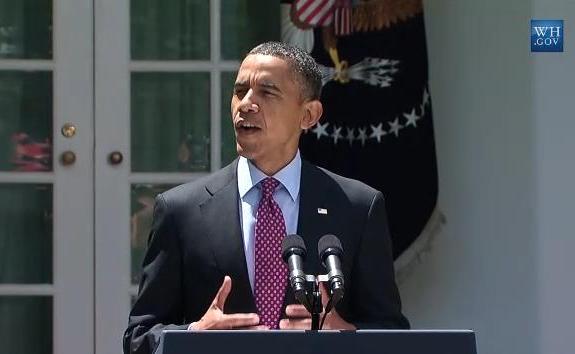After boosting border enforcement, the Obama Administration recently announced that it will also increase funding for a troublesome program started by George W. Bush. The controversial program gives Immigration and Customs Enforcement (ICE) unregulated access to the immigration information of every person in local prisons across the United States. Although Obama may be sending mixed signals as he paves a road to immigration reform—signals that frustrates many of his most steadfast supporters—he also understands that he must smooth the way for immigration reform by restoring the confidence of the American public and prove that the government is capable of upholding the rule of law.
Immigration enforcement is fundamentally a federal responsibility, but state and local governments can and should play a role in helping the federal government remove violent criminals from American society. Obama’s focus on catching hardened criminals represents the right prioritization of resources that are being funneled in the wrong direction. Rather than addressing the serious problems associated with the Bush Administration’s “Secure Communities” program, Obama’s 2010 budget, which allots $200 million for the program, seeks to expand rather than mend the deeply flawed initiative.
In an ideal world, Secure Communities would catch and deport undocumented immigrants who have committed serious crimes, rather than those who otherwise abide by the law. However, the terminal imperfections of the program are outlined by The National Immigration Law Center (NILC):
“Secure Communities has a deceptively benign appearance because of its name and purported focus on criminals. But the program applies to immigrants regardless of guilt or innocence, how or why they were arrested, and whether or not their arrests were based on racial or ethnic profiling or were just a pretext for checking immigration status.”
Without comprehensive immigration reform, the expansion of the Secure Communities program is essentially a slower and a more potentially devastating manifestation of “attrition through enforcement.” Effective and meaningful oversight, resources, and implementation of the program are necessary to ensure that harmless immigrants don’t languish in jail. Until comprehensive immigration reform is passed, it’s unlikely that the needed infrastructure for Secure Communities will be in place.
Yet, Obama’s pro-migrant critics shouldn’t lose hope. While some may see his decisions as moving two steps forward and one or more steps back, the Obama administration sees its actions as necessary when it comes to making a strong case for comprehensive immigration legislation in the near future. The White House agenda is on track with what Obama announced last month:
“If the American people don’t feel like you can secure the borders, then it’s hard to strike a deal that would get people out of the shadows and on a pathway to citizenship who are already here…The attitude of the average American is going to be, well, you’re just going to have hundreds of thousands of more coming in each year.”
The media has started equating Obama’s actions with back-tracking, progressives are questioning the integrity of his agenda, and hard-line immigration activists are questioning his loyalty. Yet, for once, it might make sense to take heed to anti-immigrant advocates who are approaching Obama with deep suspicion. Mark Krikorian, an avid restrictionist, crudely proclaims that the move is “obviously intended to strengthen the administration’s hand in making the political case” for a path to legalization for undocumented immigrants, something that anti-immigrant advocates persistently misrepresent as mere “amnesty.” Restrictionists are counting on the failure of the Administration’s tactics. Obama’s political calculations concerning comprehensive immigration reform may be costly and controversial, but to abandon a President who has repeatedly stated his commitment to fixing our immigration system could doom the prospects of reform altogether.
FILED UNDER: enforcement, Restrictionists


